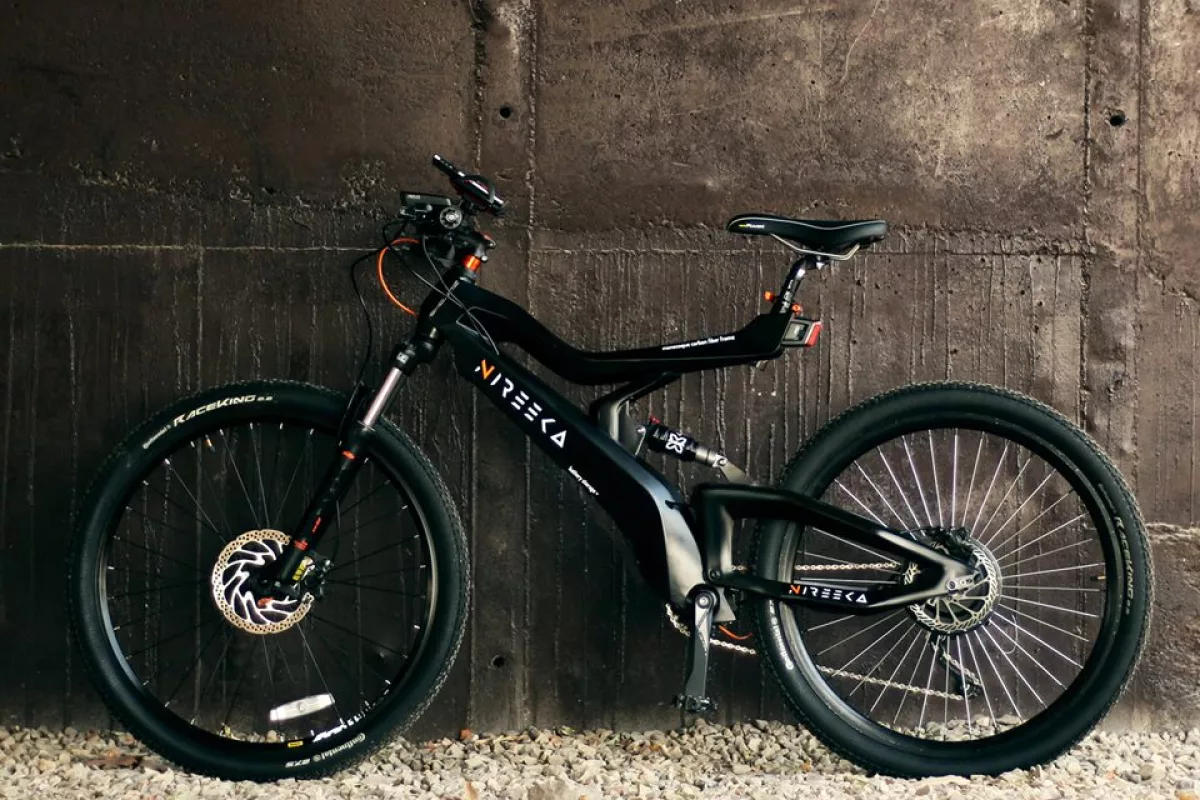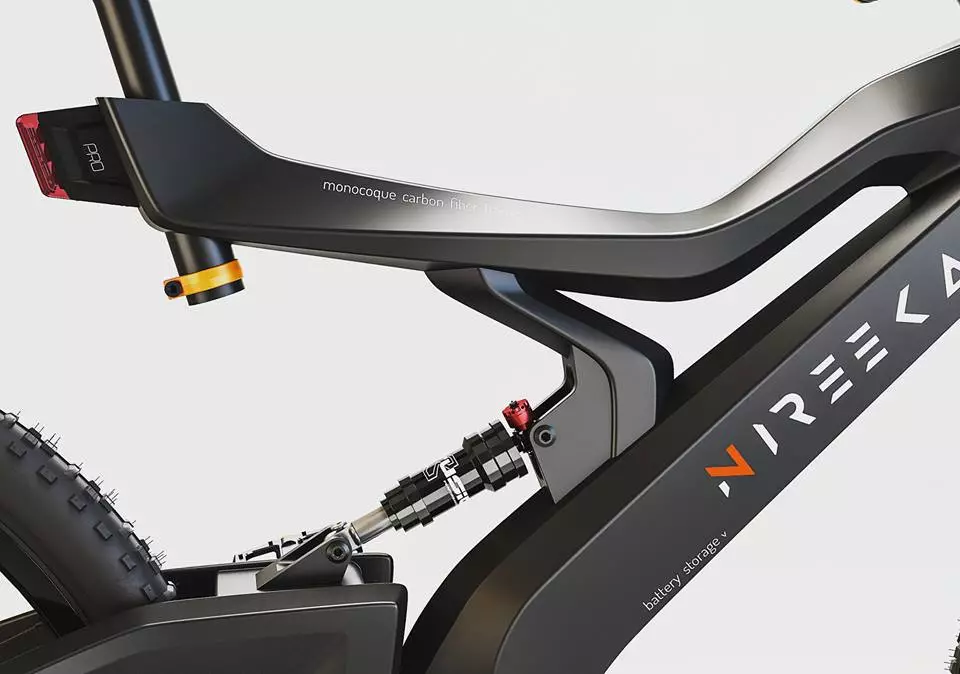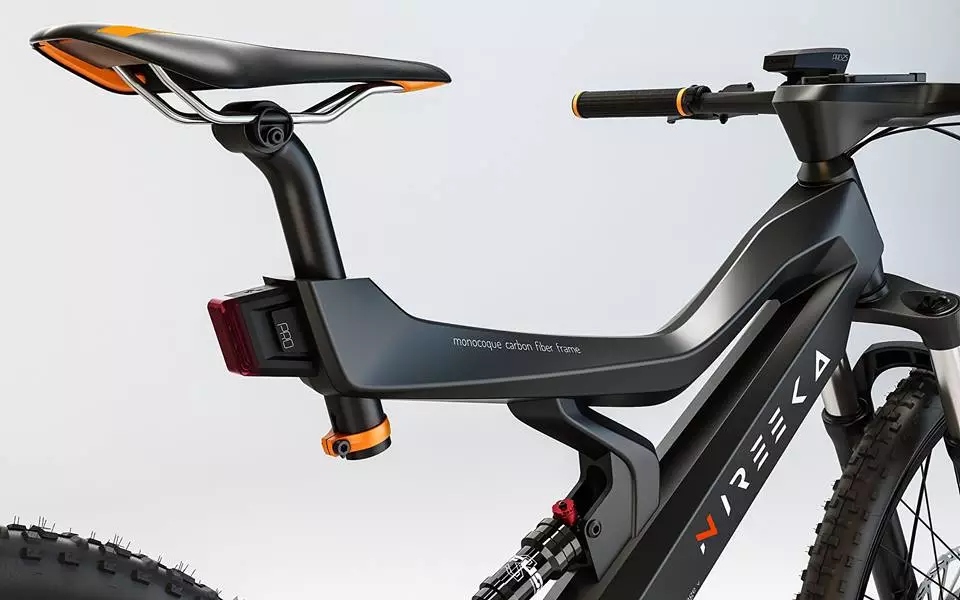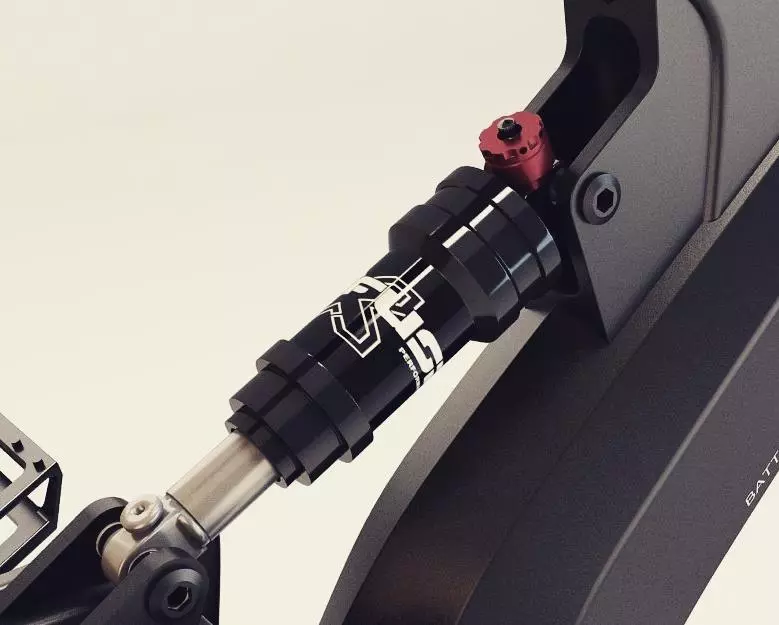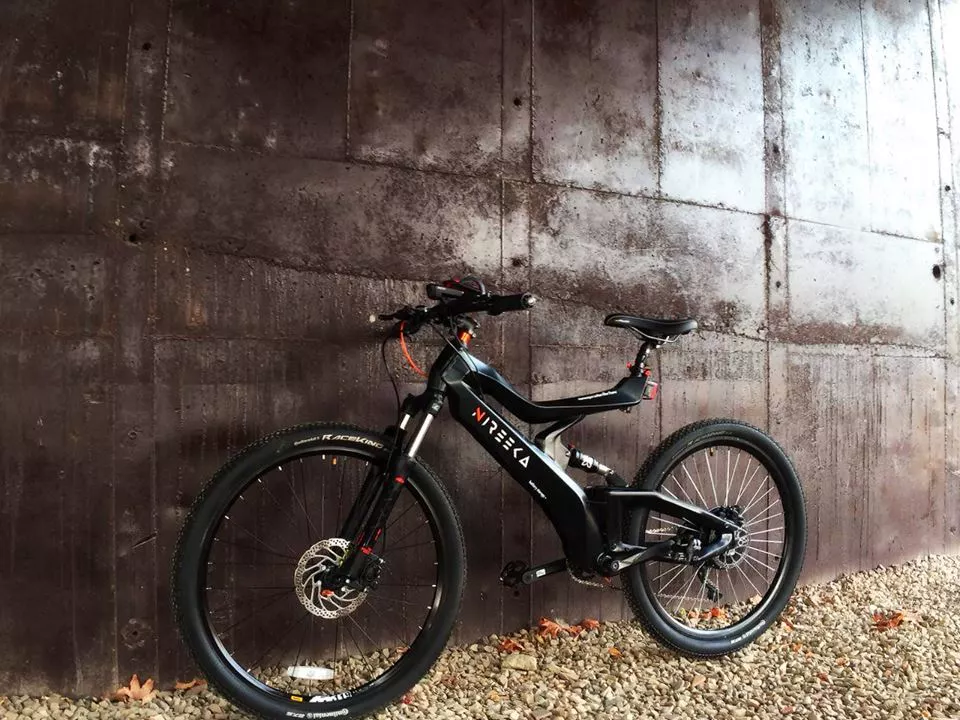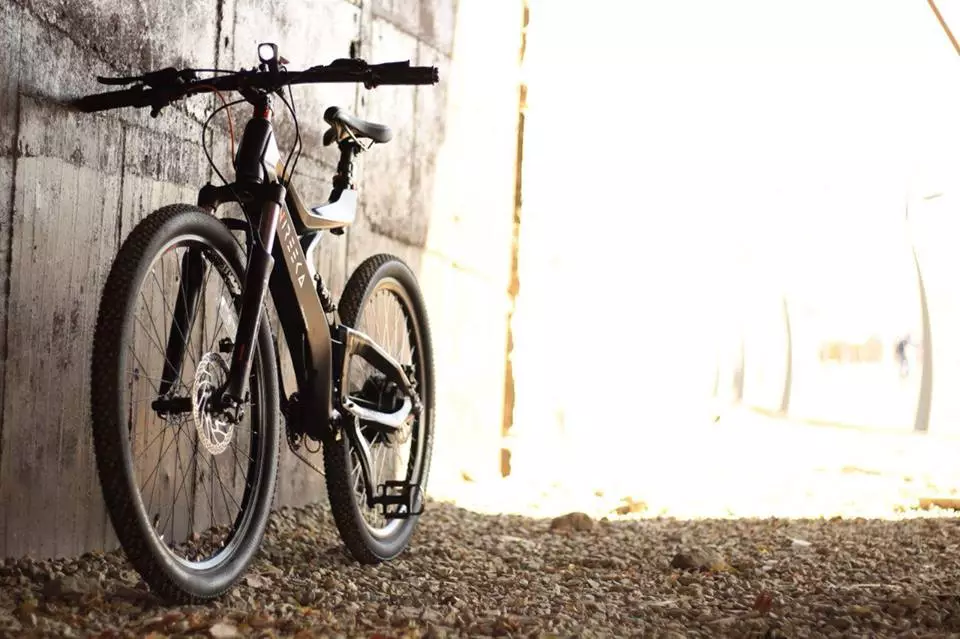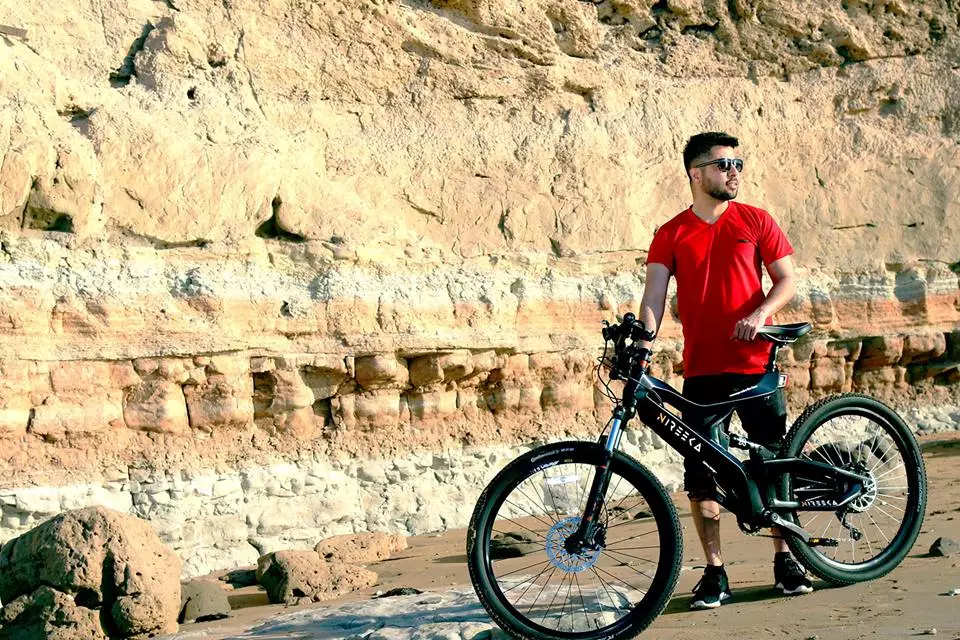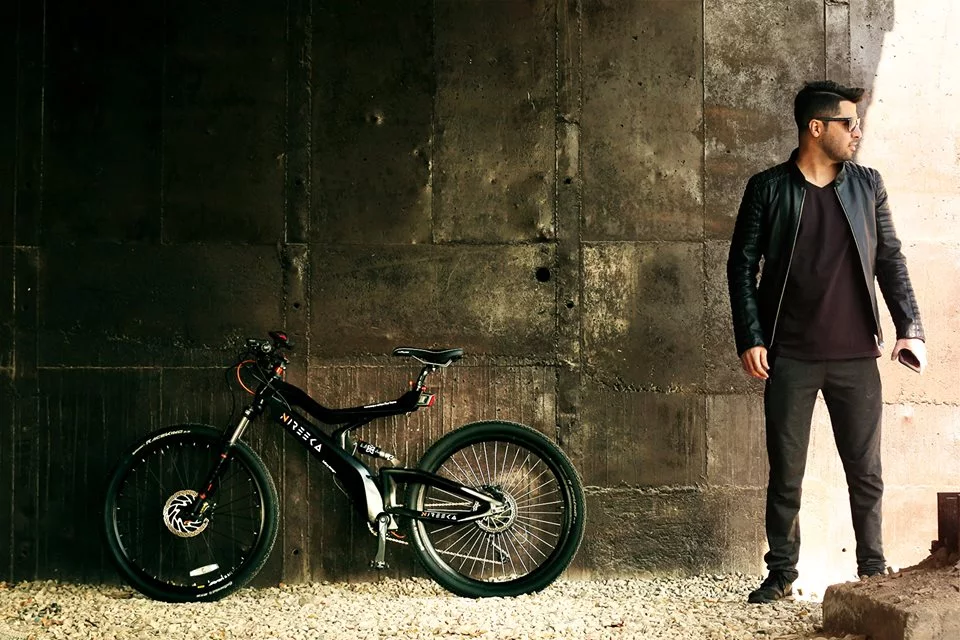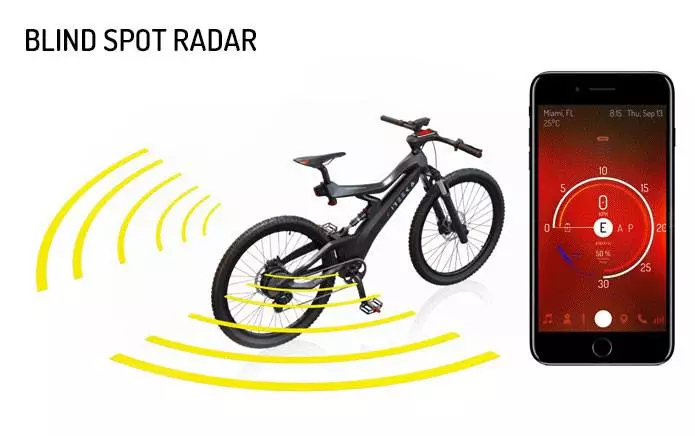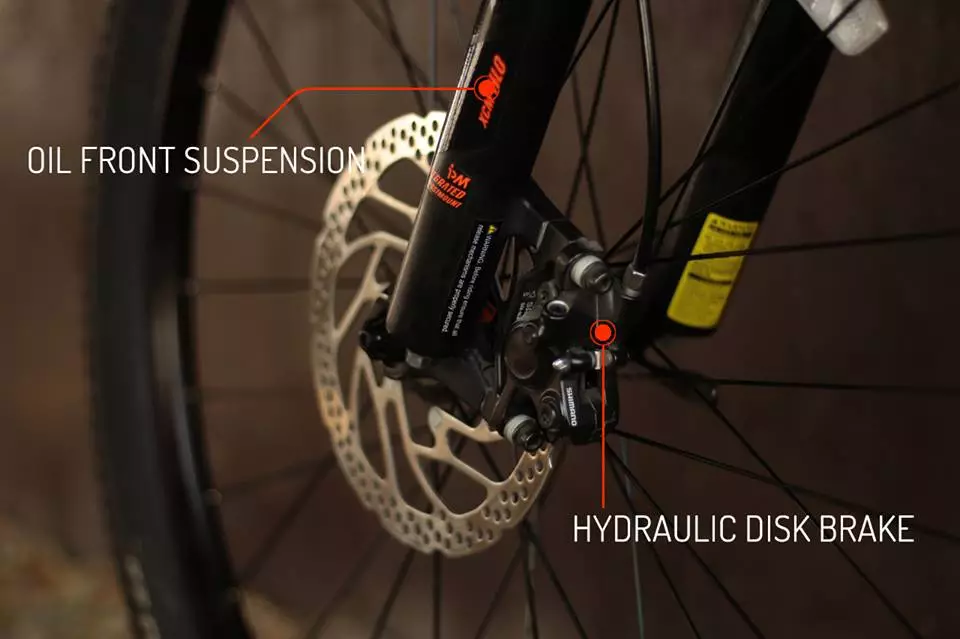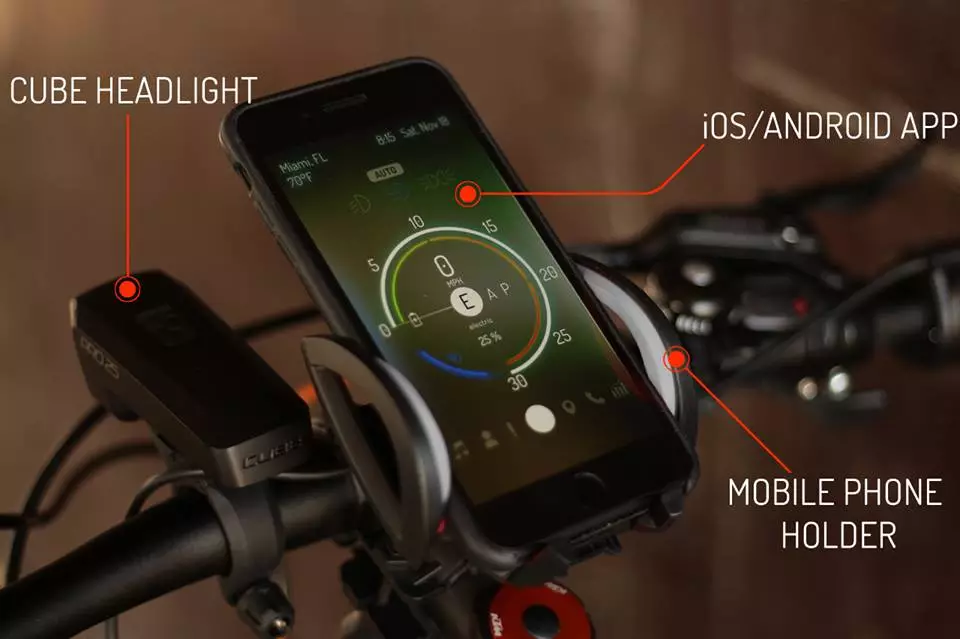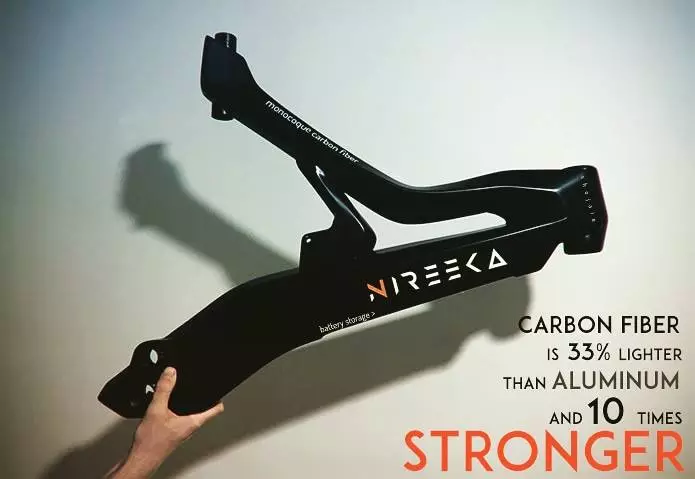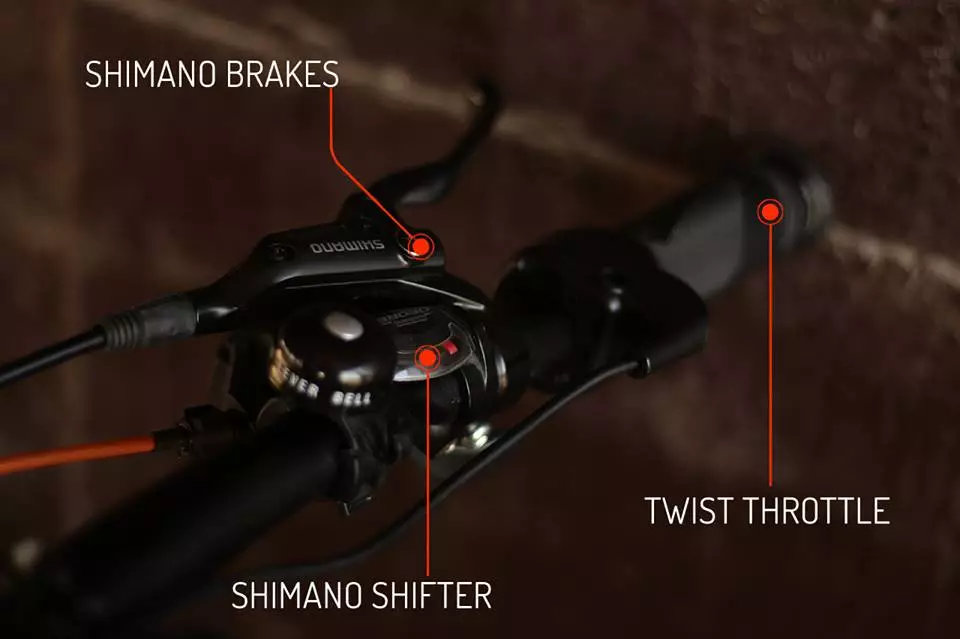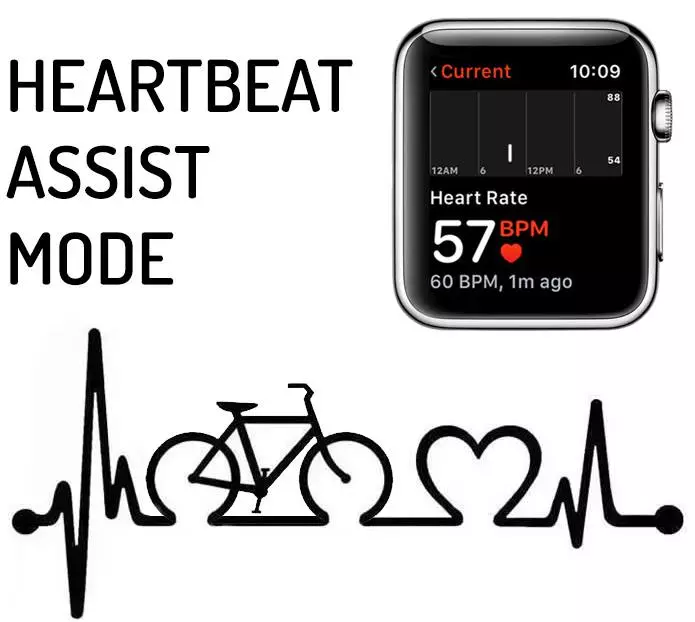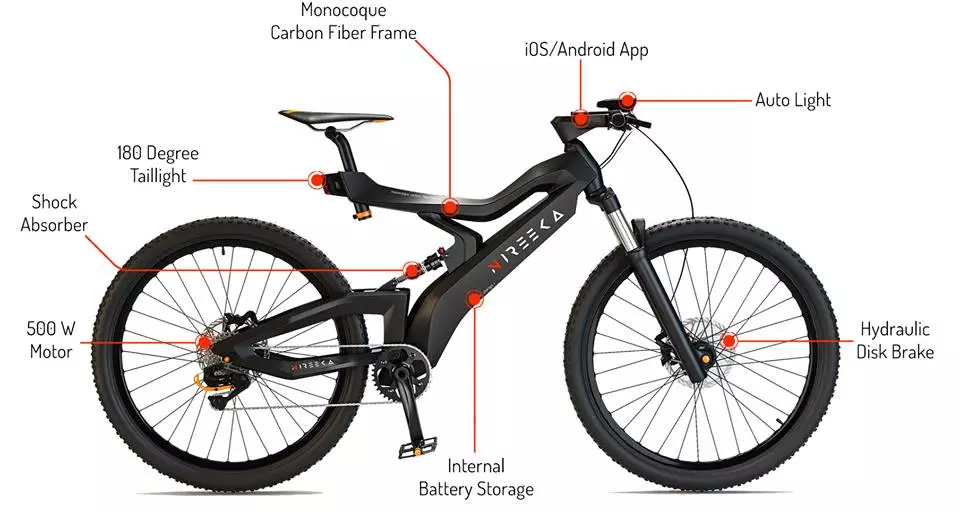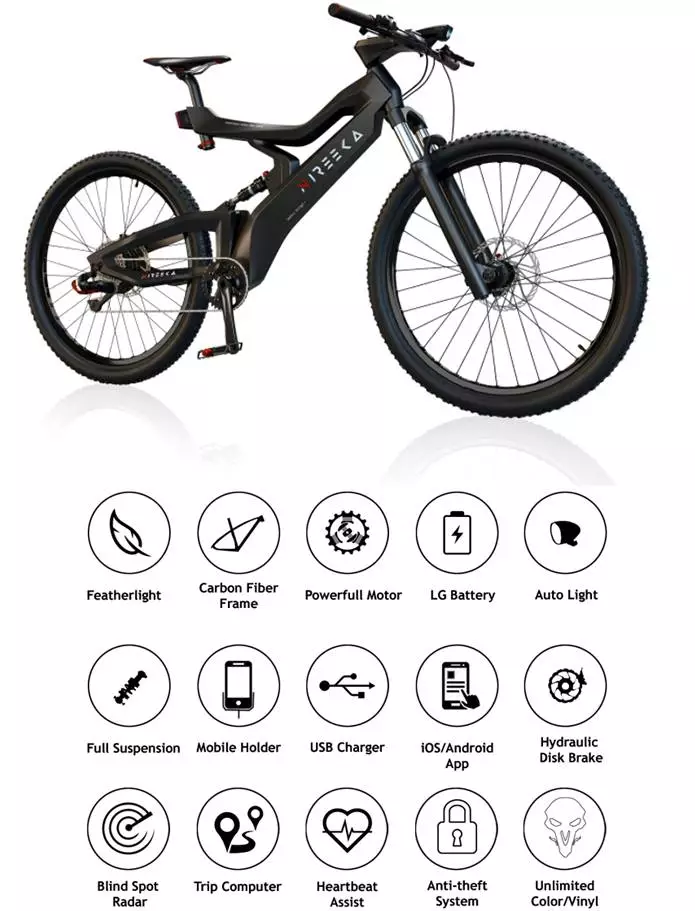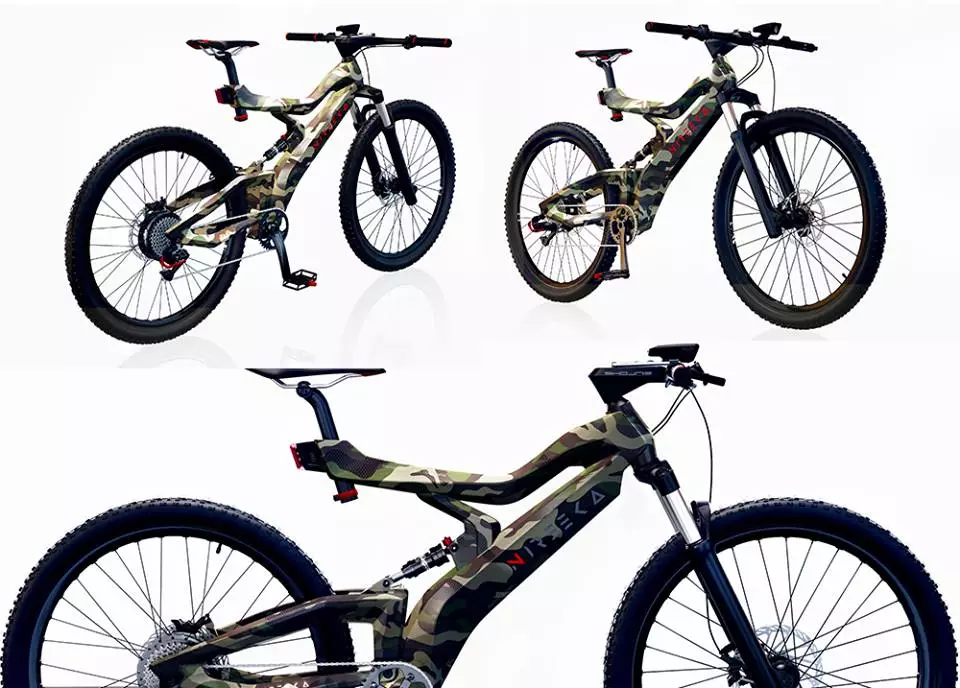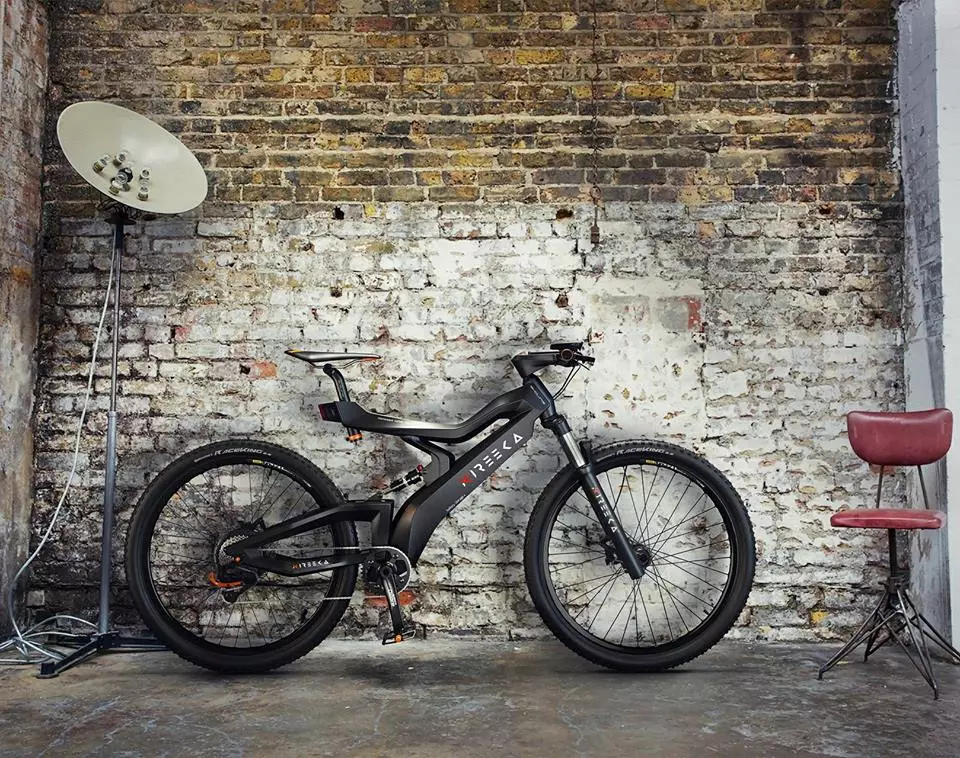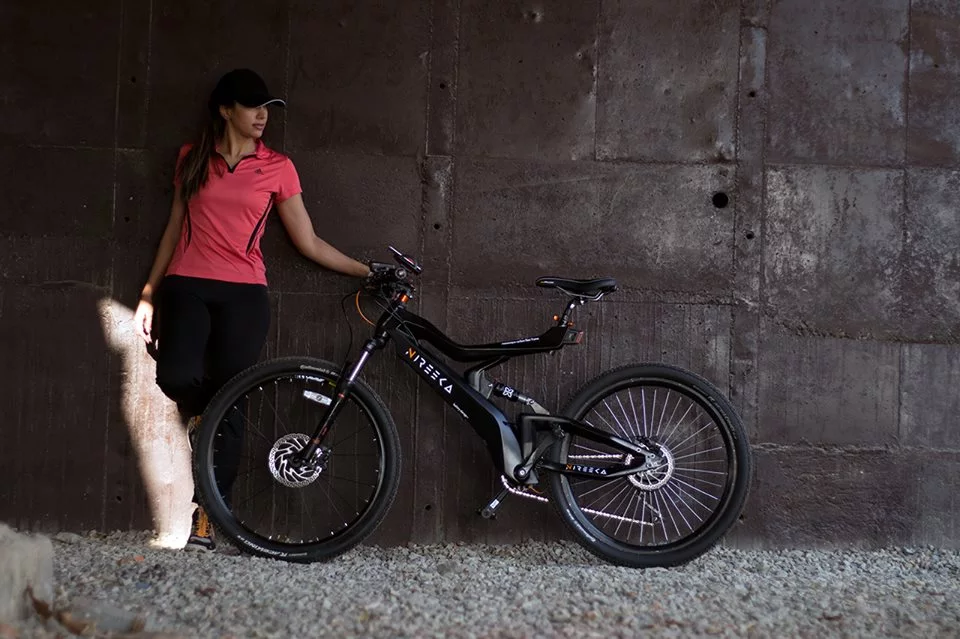We've seen some of Iranian designer Mohammed "Max" Shojaie's work before, with his creatively conceived Ostoure two-wheel-drive motorcycle design from back in 2010. That one never made it past the CAD render stage, but now, with two of his brothers and a Dubai-born partner, Shojaie has turned his hand to a real-world e-bike project. And it looks like a belter.
The Nireeka is a very attractive carbon-framed electric mountain bike that packs in a very impressive list of features for a surprisingly low price. We're talking lockable Fusion X suspension at both ends, including oil forks, a Shimano 10-speed gear cassette with one-handed gear operation, an anti-theft tracking and alarm system, blind spot warnings for traffic coming up behind you on either side, Shimano disc brakes and USB charging for your smartphone.
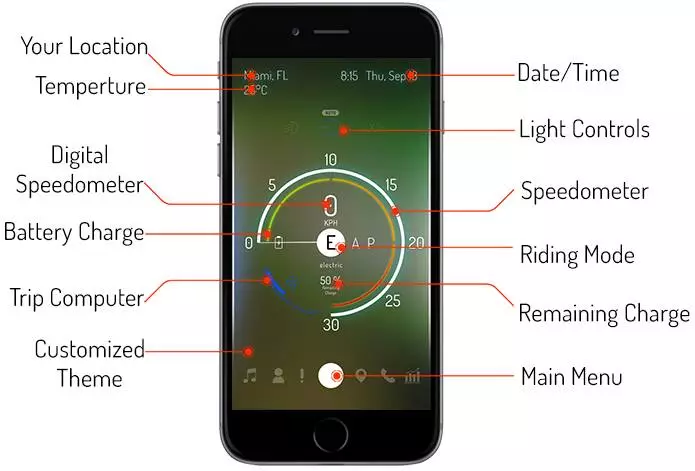
Indeed, your smartphone becomes the dash of the Nireeka, sitting in a cradle and acting as a speedometer and information readout as well as the interface to the bike's options menu. One interesting option is "heartbeat assist," which aims to keep you in the cardio zone by adding electric pedal assist power as your heartbeat rises. In other modes, you can ride it as a straight electric with a thumb or twist throttle.
The sexy-looking carbon frame weighs just 1.5 kg (3.3 lb) and the entire bike comes in at "less than 15.5 kg (35 lb)." That's pretty remarkable for something this fully featured, but it becomes just about outrageous when you see the price tag.
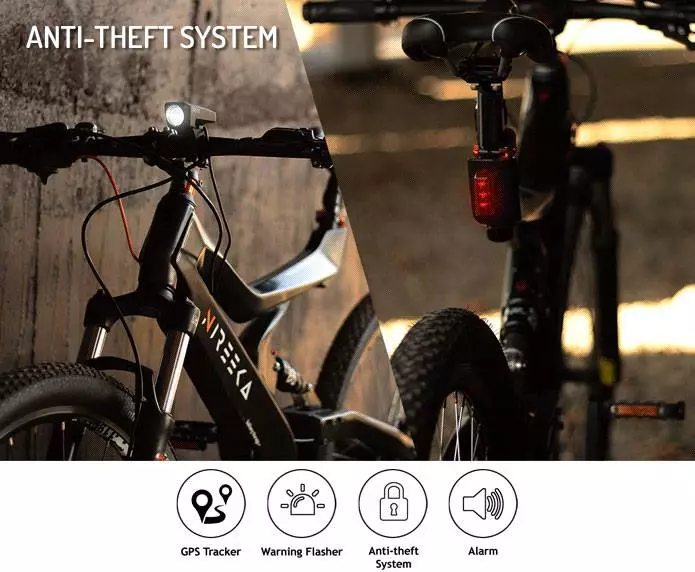
The base model Nireeka Street will cost you US$999 including $200 worth of worldwide shipping. That gets you a 250-watt Bafang hub motor and a 36-volt, 7.2-Ah lithium-ion battery, a top electric speed of 25 km/h (15 mph) and a range around 55 km (35 mi).
For $1,069 including shipping, you can get yourself the Street + model, with a 350-watt motor, a 36-volt 9-Ah battery offering a 65 km (40 mi) range and a 30 km/h (18 mph) top electric speed.
And if you're prepared to pay $1,199, you can get the Homie version, with a 500-watt motor, a 36-volt 10.8-Ah LG battery for a range of 80 km (50 mi) and a top speed of 35 km/h (22 mph). The Homie version also gets you a speed charger, an air shock at the rear, a twist throttle, hydraulic brakes and a built in Cube lighting system.
Range figures as quoted are probably very optimistic, and would rely on you using the bike at low power levels. Last time I tested an eBike, it had a 13 Ah battery, and when left at full 250-watt power, it could only manage about a third of its claimed 100-kilometre range. Mind you, that bike was about a third heavier than the Nireeka and the battery didn't clip into the frame and look super spunky like this one.
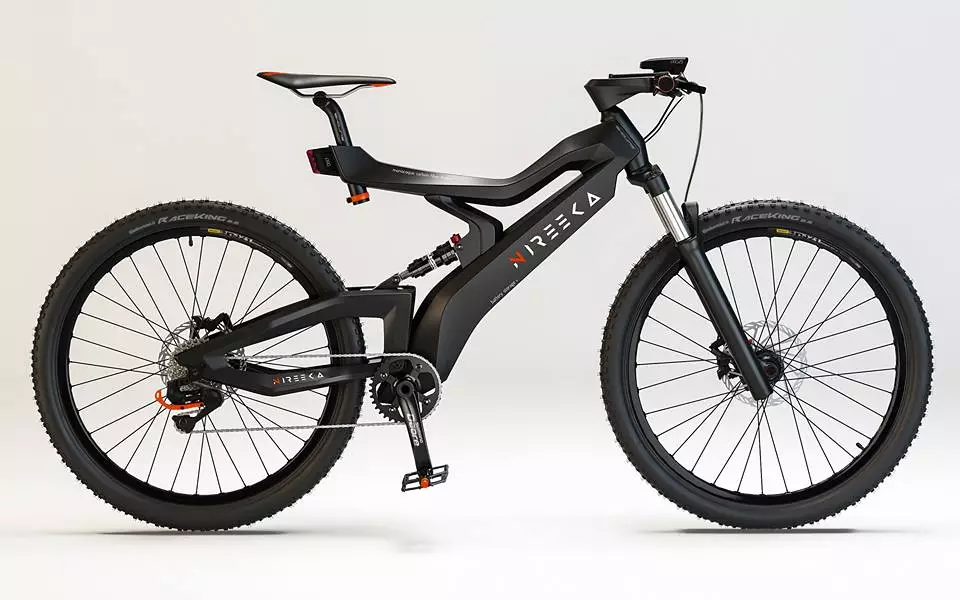
Throw an extra $99 at any of these bikes and you can option it up with a 1,000-watt motor. Or spruce your bike up with a $199 "Unlimited Color/Vinyl" option and you can pick any color of the rainbow, or upload your own vinyl wrap for a unique look.
The above prices aren't just cheap for a lightweight carbon-framed e-bike. Double those prices (which is what Nireeka says will happen when the Indiegogo campaign finishes) and they'd still be cheap. As they stand, these prices are almost ridiculously low, and they've got many of us scratching our heads at exactly how they're planning to execute it.
Hopefully not by skimping on the frame. Carbon frames are extremely light and strong when they're well designed and manufactured, but they're the last part of a bike you'd want to fail. Nireeka claims it's tested a few dozen prototype frames with up to 120 kg (265 lb) of rider aboard, including up and down stairs and the like, and is confident enough that the bike comes with a 10-day, no-questions return policy, a three-year warranty, and a lifetime frame warranty, presuming there's still a company around to return it to.
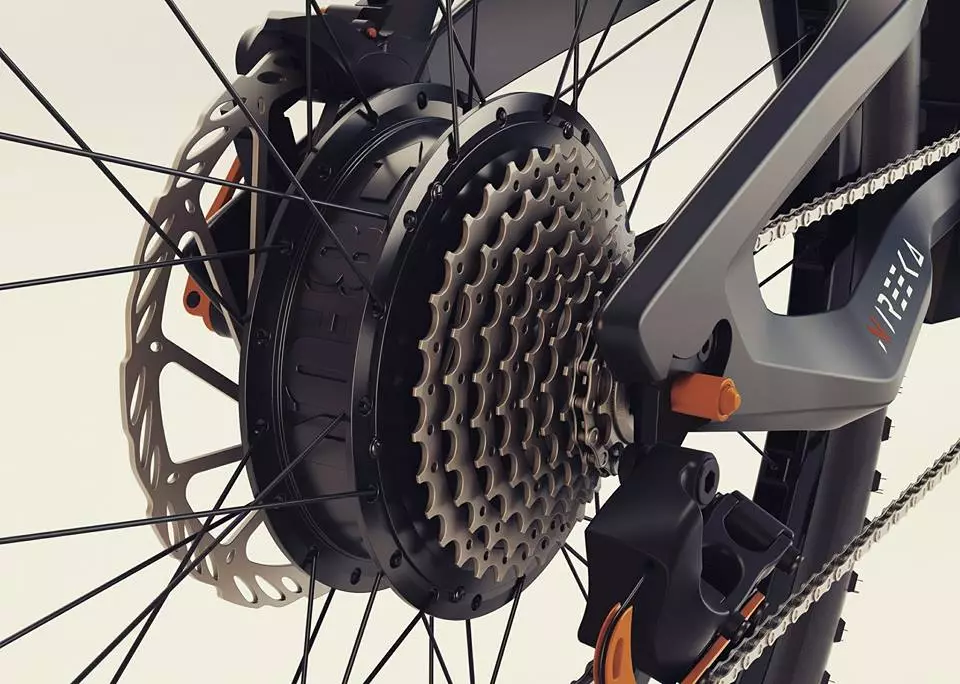
The Nireeka comes in 17-, 19- and 21-inch frame options in four different standard colors, with 27.5 x 1.5-in all-terrain tires. Batteries take around six hours to charge on a wall socket, or 2.5 hours if you've got the Homie and its fast charger. Without mudguards or any kind of rack fitment, it'll need a bit of work to turn this into a super-practical commuter, but it looks like it'll be a fun way to munch miles out of the box.
Estimated deliveries begin in June. As with any crowdfunding campaign, it's buyer beware, but the bike itself sure looks good to us. Unsurprisingly, the campaign has blasted through its $35,000 goal with just over three weeks to run, although the company website appears to be down at the time of publication, so that might give some potential customers pause.
Check it out in the video below.
Source: Indiegogo
